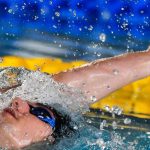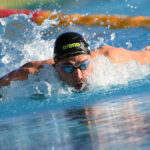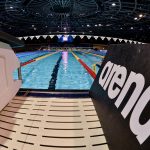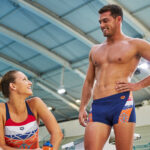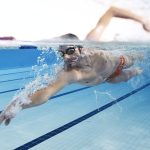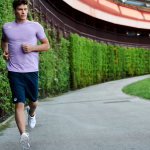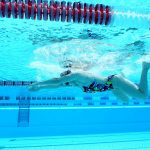Top 10 Breaststroke Drills to Improve Your Swim
Did you know that a primitive form of breaststroke is believed to be the very first movement performed by a human being to move forward through the water?
So, the good news is that swimming breaststroke comes naturally to us. But, like all things that we can do with little cognizant effort, such as breathing, walking, and running, it’s easy to fall into bad habits. Regular hard work such as consistent breaststroke drills with focus on your stroke technique can take your swimming to new heights.
In this article, we will give you some tips and tricks to improve your breaststroke and provide you with an assortment of breaststroke drills.
Get Your Technique Right First
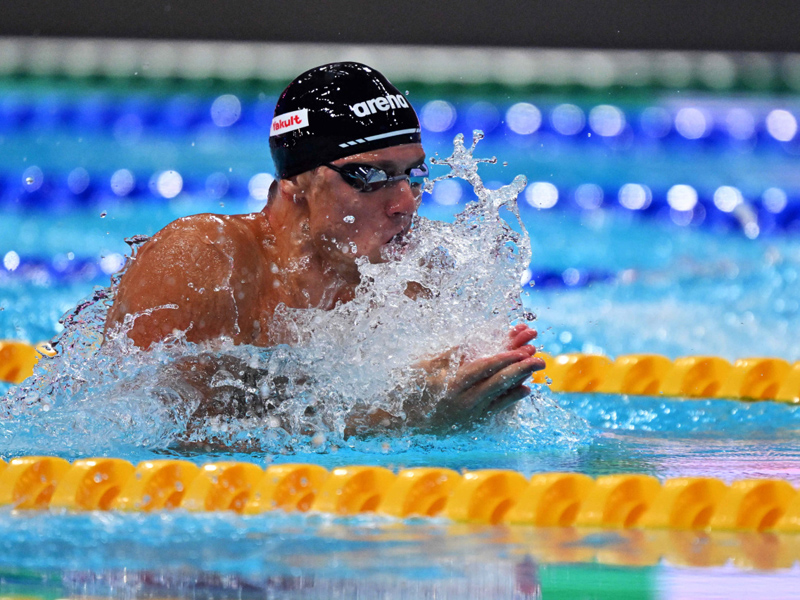
It takes an incredible amount of energy to swim the breaststroke (approximately 500 kcal/h for women and 700 kcal/h for men), so it is extremely important to perfect your technique to make your swim stroke as economical as possible.
Your breaststroke drills are the opportune time to get your technique right so that you’re not practicing a bad habit. Here are some breaststroke technique enhancers for an even stronger stroke.
Master Your Flip Turn
When racing any event that requires more than one pool-length, the flip turn can make or break your podium position. Remember that your push off is the quickest part of your race.
Mastering the transfer of energy and speed from the moment you hit the wall to the moment you propel yourself off it again in the opposite direction is where you can really earn yourself precious seconds.
Try to be at your fastest as you make the approach to the wall. This will give you more opportunity to develop a speedier push off.
Unlike the freestyle somersault-style turn, the breaststroke flip turn uses an open turn where you touch the wall with your hands and your feet follow. You will naturally have a more dominant side when your flip turn begins, either rolling your body left or right. Try using your less dominant side during practice. This will make the little details of your turn even clearer and help you to make seconds-shaving improvements.
Monitor Your Movement
Whether it’s lack of symmetry in your arm pull or your breaststroke timing is a little off, being able to take a step back and assess your breaststroke technique can take you forward leaps and bounds.
Adding a snorkel to your breaststroke drills will give you the ability to carefully monitor your full stroke since you’ll no longer have to worry about breathing. Swim snorkels let you keep your head down and allow you to really be aware of each part of your stroke. Just be mindful of counting your breaststroke pulls or look up once in a while to avoid hitting your head on the pool wall.
Boss Your Breathing
Breaststrokers will know that the body position of the stroke makes breathing very natural. As mentioned before though, natural movements can lead to bad habits.
You should lift your shoulders to bring your face out of the water to take your breath, resist the urge to lift your head up. Your head will rise with your shoulders, leaving your chin just above the surface of the water.
Remember to resist that urge, as lifting your head will lower your hips, which will increase water resistance. Excessive head lifting can even lead to back pain.
Correct Your Kick
If you can perfect your breaststroke kick, you will really be heading in the right direction (and gaining some speed too). In freestyle and backstroke, most of your momentum comes from your arms. However, in breaststroke, we aren’t using the little flutter kick anymore. The majority of the power now comes from your legs. So make each kick count!
Before practicing good form in the pool, review your breaststroke kick on dry land. Try practicing your kick on your bed at varying speeds. Without having to worry about water resistance and buoyancy, you will be able to weed out the weaknesses in your kicks much easier.
Adding fins to your drill work is also a viable option, especially if you want to add more resistance to legs that refuse to grow.
Analyze Your Drills
It feels great making gains, but you need to track your progress to realize where you’re currently at. If you don’t already, you should make notes of your times during drills and how you felt. You can record your results using your smartphone, computer or a pen and paper.
Get some technology on your side. Time your splits with a smartwatch and monitor your results as the months go by on apps like Strava. You can keep an eye on your form with underwater action cameras, such as a GoPro, and film your breaststroke technique. Play it back in slow motion later to critique yourself.
10 Breaststroke Drills You Can Use for Training
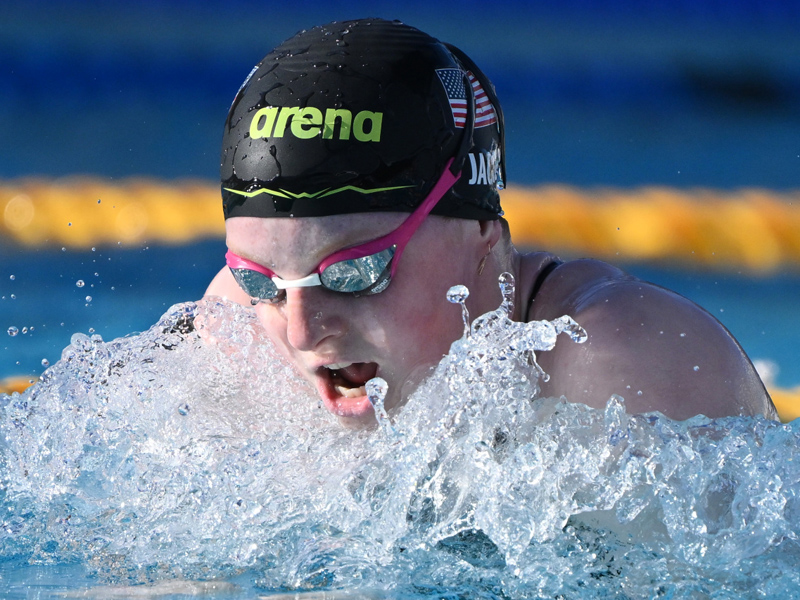
We don’t just drill to improve our cardiovascular abilities or to build strength. We are creating a mind-body connection that will serve us well when the time comes to compete. So please bear in mind the aforementioned technique enhancers to keep your form right at all times during these drills.
Make sure you watch the videos with each drill. They’re short and sweet and will show you exactly what you need to do.
1. Freestyle Legs
Swim the breaststroke with your arms, and use the freestyle flutter kick with your legs, keeping your head at the water level.
2. Butterfly Legs
Swim breaststroke arms and butterfly legs, pushing powerfully downward with your upper body to keep your head well below the water.
3. One Arm Only
Swim the breaststroke with just one arm, extending the other out in front of your head.
4. Sculling With a Pullbuoy
With a pullbuoy between your legs, extend your arms out in front of you, with your head above the water, so that your mouth is always out of the water. Make an oscillating movement with your hands, like a butterfly beating its wings, to propel yourself forward through the water.
5. Clenched Fists
Swim the breaststroke with your fists clenched.
6. Elbows Close Together
Swim regular breaststroke, making sure your elbows touch at the end of the push phase.
7. Two Leg Kicks
Swim breaststroke kicking your legs twice for every arm stroke; make your first kick, as per usual, before the end of the arm stroke and the second when your body is fully extended before beginning your arm stroke.
8. Vary Your Leg Kick
Swim the breaststroke varying your leg kick every three arm strokes.
- Three arm strokes with freestyle legs with your head at water level
- Three arm strokes with a butterfly leg kick with your head well under the water
- Three arm strokes with an ordinary leg kick
9. Head Above the Water
Swim the breaststroke keeping your head completely above the water; perform this exercise with a fast arm stroke rate to keep your upper body well up in the water.
10. Vary Your Breathing
Swim the breaststroke and breathe once as you turn your head to the right (as with the freestyle), once as you turn it to the left, and once without breathing (hyper-extend your neck downward so that your head does not come out of the water).
Stay Excited About Swimming With Dynamic Breaststroke Drills
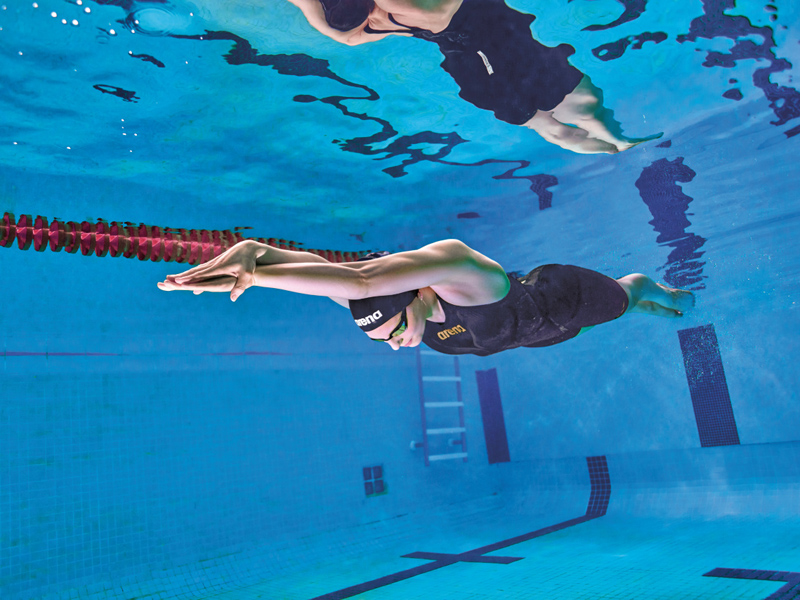
Just because breaststroke is swimming’s slowest stroke, it doesn’t mean it can’t be exciting to train. After using these drills while paying attention to good technique, it’s inevitable that your breaststroke will improve. Stay mindful of every detail of the stroke from your flip turns to your breathing. Always remember to mix up your drills as well to keep your training sessions dynamic and interesting.
Trying out new drills is addictive and eventually you may find yourself wanting to try some drills that require training aids. Whether it’s a pull buoy, a swim snorkel, swim training fins or anything in between, arena’s swim gear will keep your drills feeling fresh.
Written by:
arena coaches
Swim coaches, trainers and experts will give you all kinds of tips for performing at your best in both training and races.
